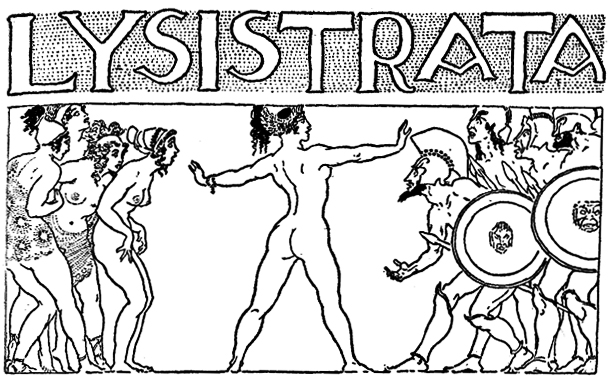Sociologist Asiye Müjgan Safe, explores the possibilities of feminist foreign policy by asking the question whether state mechanisms operating with patriarchal principles suddenly change with the participation of women advocating feminist principles?

Lysistrata, written by Aristophanes in 411 BC and performed many times since then, seems likely to continue to be staged for many years to come, as the “war game” in which the men play the leading roles is still going on. As it is known, in this work, the joint efforts of Athenian and Spartan women, from the sex boycott to seizing the state coffers, ends the twenty-year war between these two sides.
Should women also have to deal with politics among the various problems that beset them? If we say “the private is political”, yes, we have no other choice. Because the bullet that kills women every day in various corners of the world is also political. Its production, export, import and use are completely political. The reason why the children of these women are deported to the front is those countries that produce all kinds of weapons and these weapons are sold to countries that live almost on the border of starvation. In summary, feminist ideas/thoughts have to be considered not only among relations between people, but between states.
There have been some small steps in this regard in Western European countries and Canada. For example, Sweden has been following a feminist foreign policy since 2014. However, it also continues to sell weapons to countries related to the war in Yemen. Of course, non-governmental feminists in Sweden criticize this situation. Despite the so-called feminist foreign policy, there can be relative feminism in domestic politics. Feminist foreign policy was also voiced in France, Canada and Mexico. Recently, the new administration of Germany officially included it in the coalition agreement. However, all of these countries are major arms exporters. What there is to say? The familiar European notion of double morality?
Will the state mechanism operating with patriarchal principles suddenly change with the participation of women advocating feminist principles in this machine? For example, resolving the conflicts between states by a method other than war will be rejected immediately because it would be found too “female” and “feminine” for the patriarchal machine. As can be seen from the examples above, it is possible that women and governments who advocate feminist principles will make improvements in domestic politics in favor of women, at best. Nevertheless, I find these steps important. However, it should be added that unless feminist women constitute the half of the administration, it would be futile to expect significant changes. We cannot forget the phenomenon called “real politics.” There may even be feminists who might be taken with it. (I can give an example on this subject, which is not directly related to feminism, but can show how real politics can work. A Kurdish woman from Turkey is in the federal parliament in Switzerland. Her answer to the question at a public meeting about whether she experienced discrimination as a foreign-origin parliamentarian was, “I am a politician. This I cannot speak on the matter.”)
When we think of Lysistrata, the feminist peace movement, whose history goes back thousands of years, can advance its demands for disarmament and the destruction of the oppressive mechanisms of militarism, in a long-term struggle by taking part in the “male state” mechanism. In this struggle, there is a possibility of cooperation with conscientious objection, mothers of peace, the state without an army movement, academics for peace, feminism of all colors.
I would like to underline the “long-term struggle.” For example, even if Russian President Vladimir Putin who is female and US Secretary of State were Blinken who is again female, the relations between these two states would not be any different than they are today. Despite the UN’s “Women, Peace and Security” agenga, peace is still far from the world. However, such international resolutions-documents expand the possibility of non-governmental organizations and individual individuals to put pressure on states. Just like in the “Istanbul Convention” example. When Turkey recognized the Istanbul Convention, women were being killed in the country. But this Convention also empowered women. For this reason, do we not want the Istanbul Convention to be recognized again?
A feminist foreign policy, an antimilitarist foreign policy, a domestic policy that eludes the goal of police state means financial resources that can improve women’s lives in many ways. Paying for care services and housework, expanding educational opportunities, not working on menstrual days, and free products can be counted as a few of them.
Returning to the title of the article: We have to thank the 33-year-old feminist political scientist Leandra Bias for the wonderful idea of turning the Ministries of Defense into “Ministries of Peace.”
Source: Çatlak Zemin

